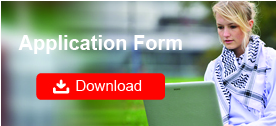General Policy
Registration Policy
New Students
Discovery Learning Center (DLC) adopts a quarter system that consists of four 10-week sessions a year. Though each of the four sessions starts on a specific date and all classes begin on the same day, some students may be admitted to existing classes up to the 5th week of each term and on a case-by-case basis.
Student must be 18 or older to register and must agree to abide by DLC’s rules and policies. All requested information must be completed on the application form. Incomplete forms will not be processed. Application forms are available on the DLC website or can be obtained by contacting the office. It is important to understand the school’s refund policies in the event that course withdrawal becomes necessary. There is a non-refundable application fee of $100. This fee is not part of the tuition and must be paid at the time of registration.
Returning Students
Our office will automatically register continuing students for the next IEP term, unless they have completed one of the following processes: completing the IEP, officially withdrawing or being dismissed from classes, or transferring to another school. It is very important that all continuing students be registered and able to attend classes from the first day of every term.
If you want to return to IEP after taking a break of two or more terms:
A student who is absent for more than 6 months must take the placement test to re-enroll. This is to ensure that the student is placed in the most appropriate level for his/her language proficiency, so that he/she will have the best learning experience. IEP does not guarantee that a student will be placed at or above the students’ previous level of enrollment, since the students’ language skills may have declined over time without active practice.
Note: These students will be held to the same placement testing policy as new students.
Leave of Absence Policy
If a student must be absent from school, the student must inform the school and report the reason for the absence.
If a student is absent for three consecutive days and does not notify the school, the school will attempt to contact the student by telephone, email, and/or by mail. On the student’s return he/she will be required to meet with the school’s administrative staff concerning the absences.
Excused absences shall be granted on a case-by-case basis. Reasons can include, but are not limited to:
illness of the student or a family member; death of a family member; religious holiday of the student’s own faith; medical or dental appointments. Unexcused absences may result in dismissal from the program.
Occasionally, students may experience extended personal, medical or other problems which make it difficult to attend class. DLC allows a student under such circumstances to take a Leave of Absence (LOA) from the program up to 60 days. An LOA must be requested in writing by the student and must be approved by the Campus Director.
Copyright Policy
Textbooks and other written material fall under US copyright laws. A reminder of this mandate is posted above the photocopier at DLC. Staff will not copy written material that in any way exceeds the limitation of those copyright laws.
DLC recognizes federal law which explains that it is illegal to duplicate copyrighted materials without authorization of the holder of the copyright, except for certain exempt purposes. Under federal copyright law, a copyright exists in “original works of authorship” that are fixed in a tangible medium of expression for more than a transitory duration from which the work can be perceived, reproduced, or otherwise communicated, either directly or with the aid of a machine or a device.
It is the responsibility of the staff/faculty to abide by the requirements of the law. Severe penalties may be imposed for unauthorized copying of audiovisual or printed materials, and computer software, unless the copying or using conforms to the “fair use” doctrine.
What is “Fair Use”?
Often staff can use published works in their teaching without permission or fee according to “fair use copyright guidelines.” However, there are circumstances in which permission and/or fees are required. Sorting out what a person can or cannot do is often confusing. Fair use is a legal doctrine that promotes freedom of expression by permitting the unlicensed use of copyright-protected works in certain circumstances. Section 107 of the Copyright Act provides the statutory framework for determining whether something is a fair use and identifies certain types of uses as examples of activities that may qualify as fair use.
In determining whether the use made of a work in any particular case is a fair use the factors to be considered shall include:
(1) the purpose and character of the use, including whether such use is of a commercial nature or is for nonprofit educational purposes;
(2) the nature of the copyrighted work;
(3) the amount and substantiality of the portion used in relation to the copyrighted work as a whole; and
(4) the effect of the use upon the potential market for or value of the copyrighted work.
As a general rule a single photocopy of part of a copyrighted work, such as a copy of an article from a scientific journal made for research, is considered fair use and can be copied by a student for his or her own use. Photocopying large parts of a book recommended for purchase by the instructor, making multiple copies of articles or book chapters for distribution to classmates, or copying material from workbooks, is considered to exceed fair use and would fall under regular copyright laws.

